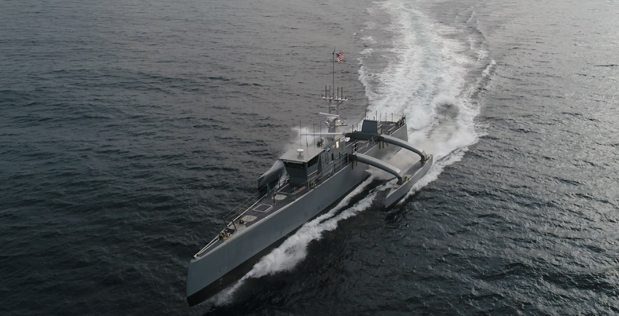SOURCE: IDRW.ORG TEAM

The Indian Navy’s unwavering pursuit of innovation and technological advancement has set the stage for a groundbreaking development in the realm of naval operations – the advent of unmanned boats. As part of its “Integrated Unmanned Roadmap,” the Navy is gearing up for the maiden sea trials of an autonomous vessel, equipped with cutting-edge sensors and surveillance equipment. This significant milestone marks a leap forward in the application of autonomous technologies for maritime operations and underscores the Navy’s commitment to enhancing its capabilities while ensuring the safety of its personnel.
The unmanned boat, jointly developed by the Navy’s Weapons and Electronic Systems Engineering Establishment (WESEE) and Bharat Electronics (BEL), is a 15-meter-long marvel of engineering. Capable of navigating through complex maritime traffic and challenging sea conditions, this autonomous vessel showcases the Navy’s determination to harness emerging technologies for strategic advantage.
The forthcoming sea trials, scheduled after the monsoon season, were initially planned for June but faced a postponement due to adverse weather conditions. This decision underscores the Navy’s meticulous and thorough approach to testing and validating advanced systems, prioritizing the reliability and safety of these cutting-edge assets.
The unmanned boat holds immense potential across a wide spectrum of maritime applications. Equipped with advanced sensors and surveillance equipment, it can serve as an invaluable asset for reconnaissance, surveillance, and mine-countermeasure operations. By reducing the need for human personnel in certain high-risk tasks, the autonomous vessel mitigates potential risks, enhancing the overall safety of naval operations.
The successful execution of these trials will pave the way for a new era of unmanned systems in the Indian Navy’s arsenal. The integration of autonomous aerial, surface, and underwater platforms, as envisioned in the “Integrated Unmanned Roadmap,” will revolutionize the Navy’s approach to maritime operations over the next decade. These unmanned systems, ranging in size and capabilities, will augment the Navy’s surveillance capabilities, increase its situational awareness, and bolster its response to evolving threats.
Embracing autonomous technologies aligns with global trends in naval warfare, where unmanned platforms play an increasingly vital role in modernizing naval operations. As a forward-thinking force, the Indian Navy seeks to remain at the forefront of technological advancements and maintain a competitive edge in the ever-changing maritime landscape.
Beyond the realm of military applications, the development and deployment of autonomous vessels hold potential for civilian and commercial use. Unmanned boats can be harnessed for maritime research, environmental monitoring, and search-and-rescue missions, further contributing to India’s maritime interests and humanitarian efforts.
NOTE : Article cannot be reproduced without written permission of idrw.org in any form even for YouTube Videos to avoid Copy right strikes